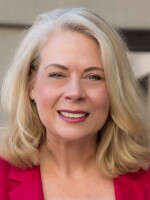We’re back with another edition of ClearPath – Your Roadmap to Health & Wealth. I’m your host, Al Waller. June is Pride Month, which offers an opportunity to reflect on the headwinds and structural inequalities that may limit the LGBTQ community’s ability to prepare, save, and reach long-term financial goals. According to Sage USA, members of the LGBTQ community are likely to earn less than their straight peers.
Catherine Collinson, CEO and president of Transamerica Institute, is joining us to share her insights on the topic of retirement readiness in the LGBTQ community.
Welcome, Catherine. It’s great to have you back. To start off, what can you tell us?
Catherine Collinson:
Al, our research is in line with the SAGE study you cited. We find that LGBTQ workers typically earn less, are less likely to be saving for retirement, and, as a result, have less saved for retirement.
Al:
Historically, many LGBTQ people have retired in poverty. However, throughout the last few decades, LGBTQ workers have gained legal protection in the workplace from discrimination based on sexual orientation and gender identity. With this continued forward progress, what can you tell us about their retirement readiness?
Catherine:
Today’s generation of LGBTQ workers has a much brighter retirement outlook than that of previous generations, who, like you mentioned, were often deprived of many civil rights.
While our research finds that LGBTQ people face a greater risk of not achieving a financially secure retirement compared with straight workers, I’m cautiously optimistic. With the protections you mentioned, as well as the ability to enjoy
marriage benefits such as spousal Social Security, societally, we are on the right track to an improving retirement readiness for today’s and future generations of LGBTQ workers.
Al:
In the meantime, what are some actionable ways LGBTQ workers can get financially back on track as we all emerge from the pandemic?
Catherine:
For everyone, achieving a secure retirement requires meticulous planning and preparations. Here are four things I recommend:
1. While it sounds fundamental, save for retirement. If your employer offers a plan, enroll in it, and save enough to get the company match, if available. If you are not offered a plan at work, consider investing in an IRA.
2. Take advantage of the planning tools and resources offered by your employer’s retirement plan provider. For example, use their retirement calculators for goal-setting purposes.
3. Set forth a budget and financial plan that includes both short-term and long-term goals.
4. Avoid dipping into your retirement savings because it can severely inhibit their long-term growth.
Al:
Thank you for this helpful information, Catherine. As always, it is a pleasure to have you on the show. That’s all we have time for today on ClearPath – Your Roadmap to Health and Wealth on WYPR, your NPR news station.
Clearpath is paid for by Transamerica Institute.





